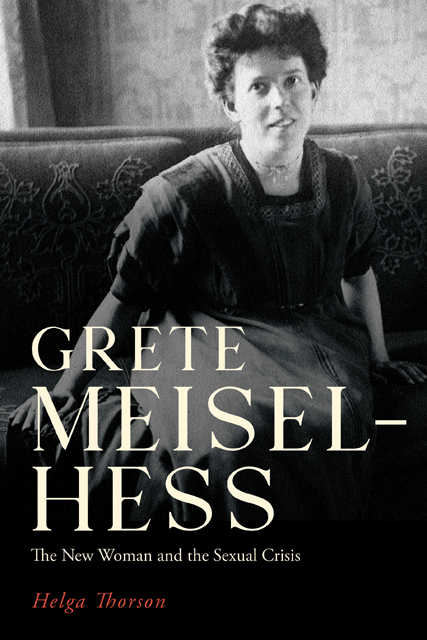Book contents
- Frontmatter
- Dedication
- Contents
- List of Illustrations
- Acknowledgments
- List of Abbreviations
- Introduction: Breaking with the Past, Forging the Future
- 1 The New Woman of the Early Twentieth Century
- 2 Feminism and Jewishness in Viennese Literary Modernism
- 3 Theorizing the Sexual Crisis through Journalism and Sexology
- 4 Effecting Change through Literature: Die Intellektuellen (1911)
- 5 Sexual Sociology during the First World War
- Conclusion: Living the Sexual Crisis
- Bibliography
- Index
5 - Sexual Sociology during the First World War
Published online by Cambridge University Press: 11 January 2023
- Frontmatter
- Dedication
- Contents
- List of Illustrations
- Acknowledgments
- List of Abbreviations
- Introduction: Breaking with the Past, Forging the Future
- 1 The New Woman of the Early Twentieth Century
- 2 Feminism and Jewishness in Viennese Literary Modernism
- 3 Theorizing the Sexual Crisis through Journalism and Sexology
- 4 Effecting Change through Literature: Die Intellektuellen (1911)
- 5 Sexual Sociology during the First World War
- Conclusion: Living the Sexual Crisis
- Bibliography
- Index
Summary
Similar to the way she challenged the notion of l’art pour l’art in literature, especially in her 1911 novel Die Intellektuellen, Meisel-Hess’s second book of her trilogy on sexology, Das Wesen der Geschlechtlichkeit: Die sexuelle Krise in ihren Beziehungen zur sozialen Frage & zum Krieg, zu Moral, Rasse & Religion & insbesondere zur Monogamie (The Nature of Sexuality: The Sexual Crisis in its Relations to the Social Question and to War, to Ethics, Race, and Religion, and Particularly to Monogamy, 1916), is based on her viewpoint that “der Geschlechtsakt um des Geschlechtaktes willen geübt, / das l’art pour l’art in der ‘Liebe’” (WdG 617: the sexual act practiced for the sake of the sexual act, / art for art’s sake in “love”) is leading to the downfall of society. For Meisel-Hess, it was a monogamous and loving relationship between two individuals combined with responsible procreation between a woman and a man that she believed would bring about societal improvement and evolutionary progress. Das Wesen der Geschlechtlichkeit takes up many of the arguments Meisel-Hess articulated in her earlier writing, such as sexual selection, racial hygiene, colonization, and the importance of motherhood protection as a central tenet of the women’s movement, but in this book Meisel-Hess also reevaluates and questions some of her earlier feminist theories and beliefs. At times, both the tone and the content of her writing demonstrate a dramatic shift in perspective. In this chapter I focus on the context surrounding these changes, particularly Meisel-Hess’s own personal experiences in the midst of great societal upheaval, including two years of war that had already deeply affected European society.
The dedication of the book is especially revealing, as is the epigraph at the beginning of the introductory chapter, both of which allude to death and devasting destruction in the midst of the First World War and the hope of rebirth and renewal, especially as it relates to sexuality and the relationship between the sexes. This second book in her trilogy on sexology is a sizable study comprising 666 pages and published in two volumes. Although she originally thought the book would appear shortly after the 1909 publication of Die sexuelle Krise (SK x), it took seven years for the book to come to fruition.
- Type
- Chapter
- Information
- Grete Meisel-HessThe New Woman and the Sexual Crisis, pp. 178 - 226Publisher: Boydell & BrewerPrint publication year: 2022



